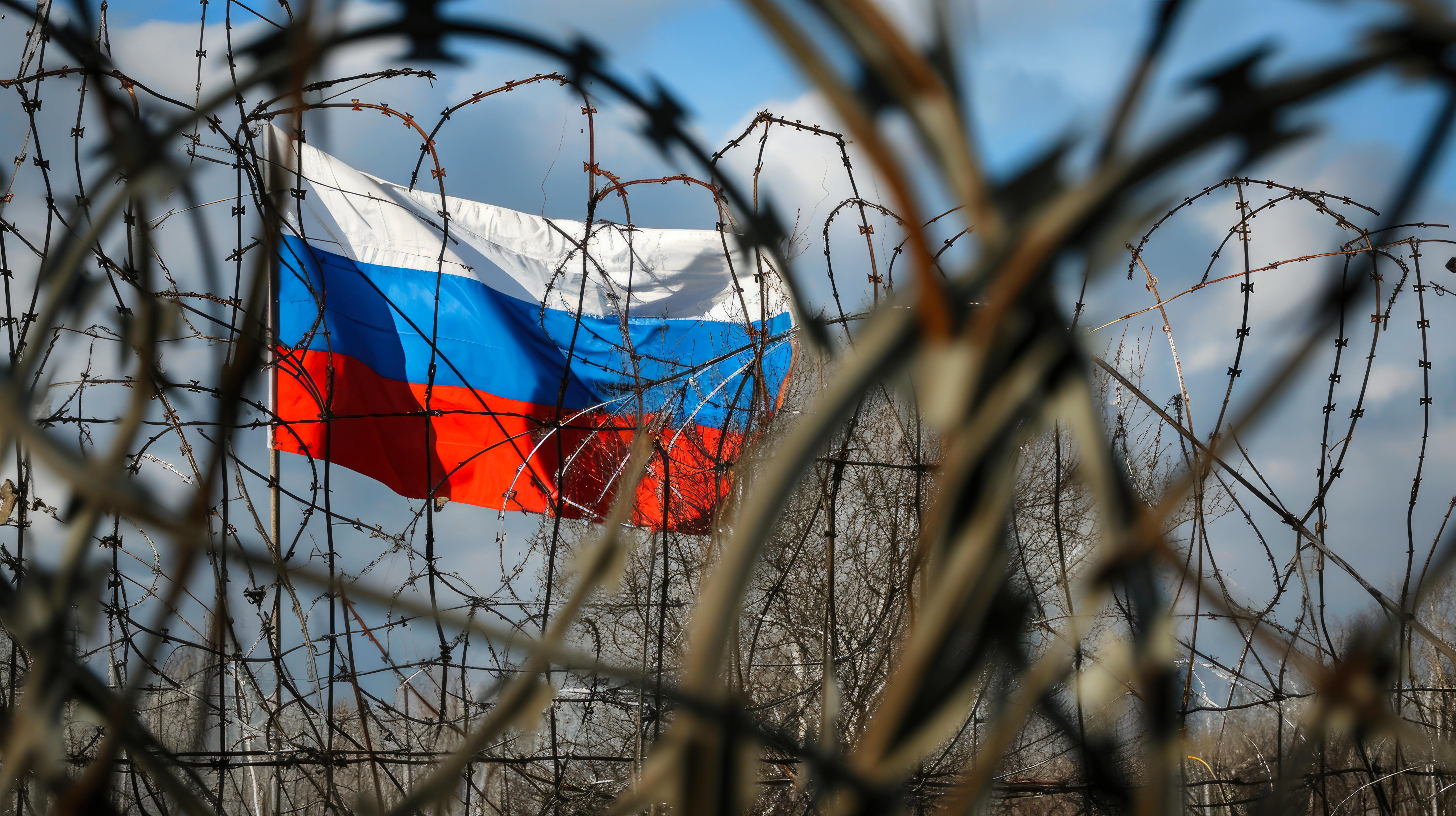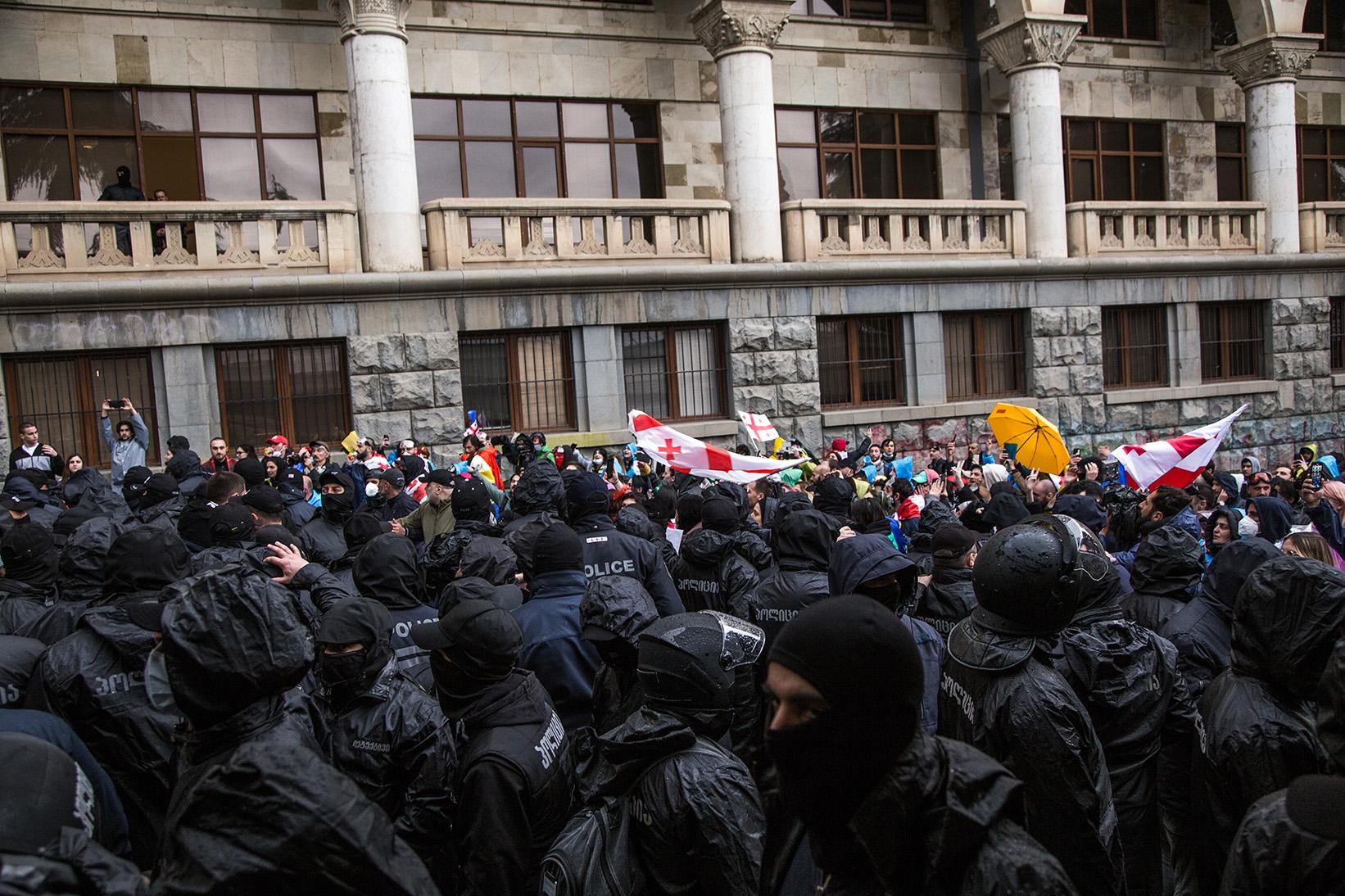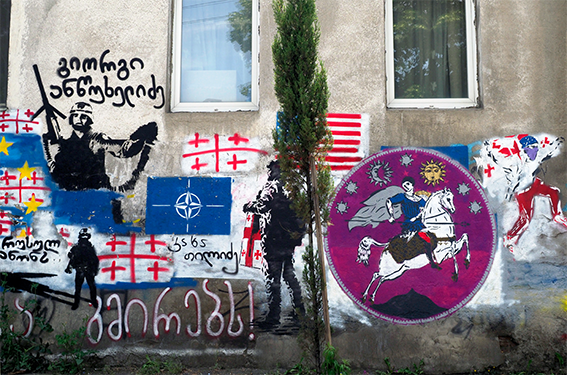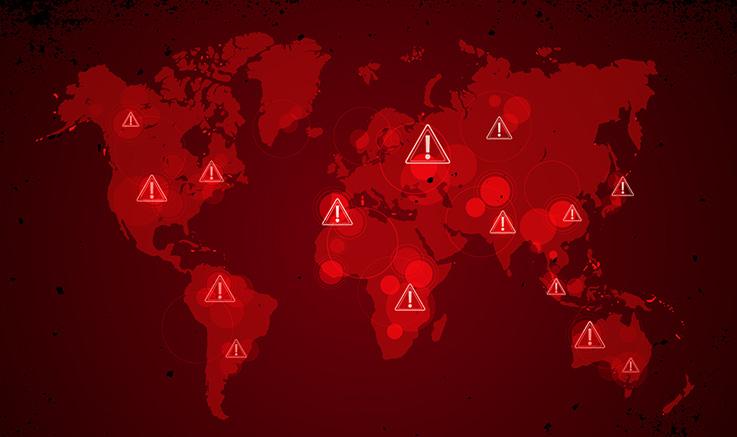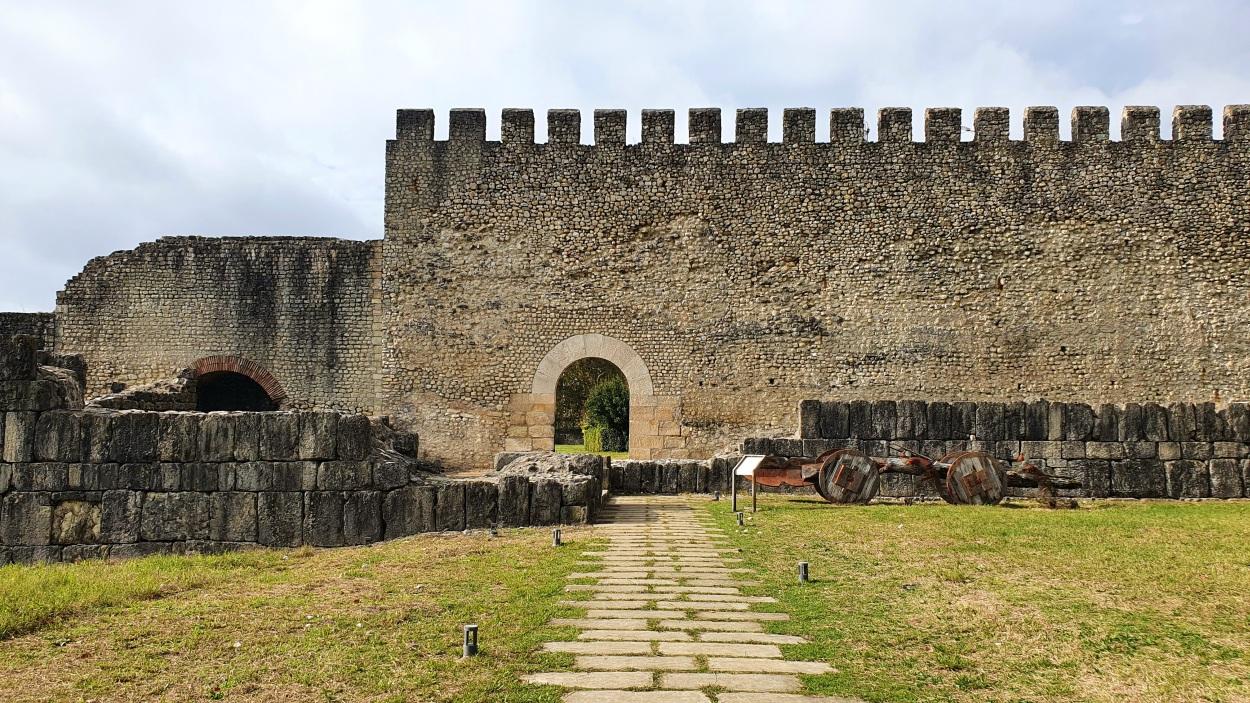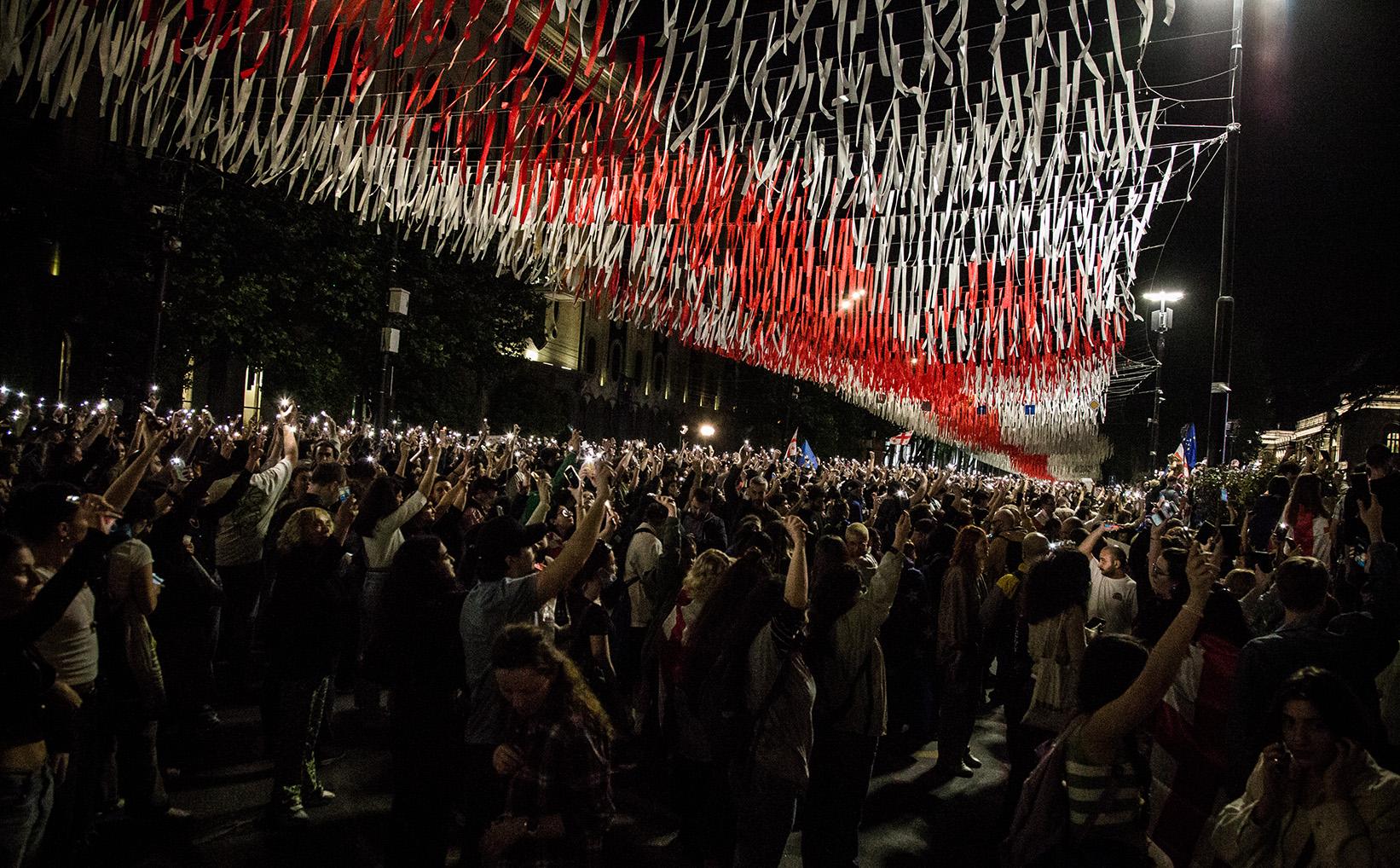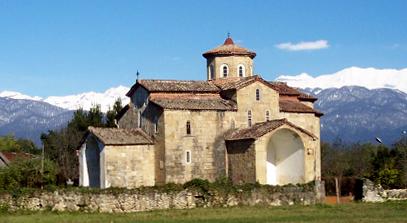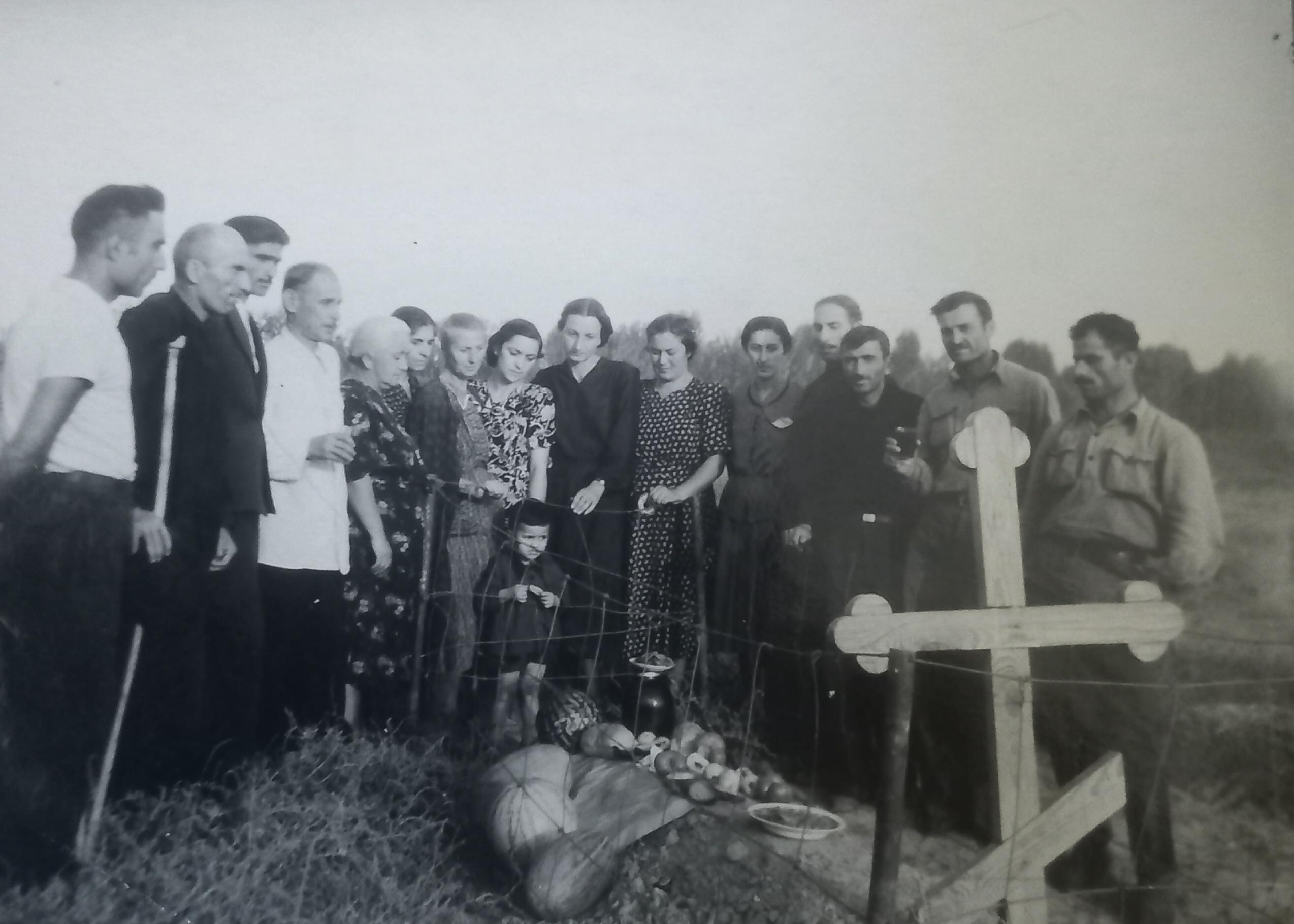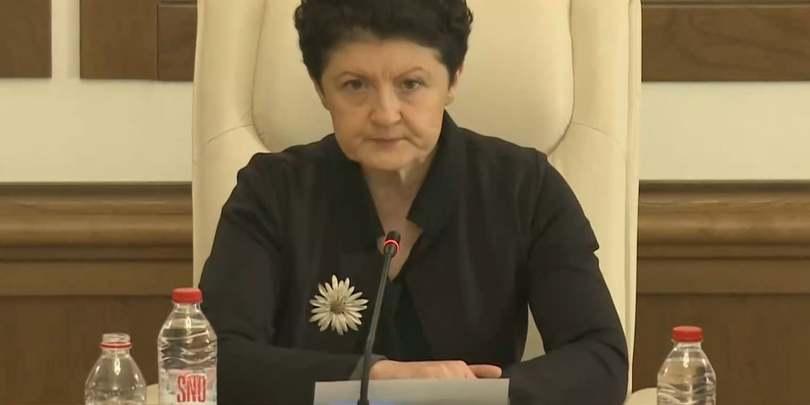
Authors : Mate Gulua, Rati Tkemaladze


‘Commission, commission, commission!‘ shouts the TV, the radio, the social media, even your neighbour. For almost two months, the masquerade of the Georgian Dream—otherwise known as the Temporary Investigative Commission—has dominated the ‘zeitgeist’ in Georgia.
‘Did you hear what Tsulukiani said?’, ‘Gakharia has been summoned!’, ‘Madam Aluda!’—these are the phrases that can now be heard everywhere.
But why?
Why is Bidzina Ivanishvili’s so-called Parliament staging this circus performance for all Georgia to see?
We all know that Mr. Bidzina is fond of his ‘little tricks’, so it’s not hard to guess that this investigative commission—a clumsy, local-grotesque imitation of the Nuremberg Trials—is just another trick from Bidzina Ivanishvili’s repertoire.
If we agree that this is a trick, the next question is: Where exactly is Ivanishvili deceiving us?
The short answer is ‘everywhere’, of course.
But in the specific context of this commission, the deception is more difficult to pinpoint.
At first glance, given that the investigative commission has completely captured the public’s attention, one might think the trick’s purpose was to divert society’s focus—from the ongoing protests to how Gakharia and Tsulukiani are flirting in front of the entire nation; to whether person X should have shown up when summoned; whether person Y should pay bail for refusing to appear; or how former Shevardnadze-era official and absolutely ‘honest’ person Z was robbed of his perfectly ‘legitimately’ acquired property by the National Movement… and so on.
In short, this is the classic ‘bread and circuses’ routine—except that in this country, many people are already struggling to get bread, and the circus has turned out to be rather pitiful.
But if this really was the purpose of the trick, then, unfortunately, we must admit—it has worked all too well.
All this is understandable, but if we should have learnt anything in the last 13 years, it is that Bidzina’s tricks cannot be perceived in one dimension. Moreover, the trick in this Dream move is precisely that we should perceive it simply as a ‘bread and circuses’ strategy and nothing more. However, there are far more insidious and evil intentions behind it. In reality, the so-called Temporary Commission to Study the Activities of the National Movement is a multi-tentacled attack on the history, present, and future of Georgia.
In reality, the commission serves three purposes. The first—and relatively transparent—goal is to have Georgia, through Tsulukiani’s so-called investigation, officially acknowledge responsibility for starting the 2008 war.
The second objective, somewhat more carefully packaged, is to discredit the nine-year rule of the United National Movement. Georgian Dream and Russia have been pursuing this narrative in tandem for at least twelve years, but now, by staging an official ‘Nuremberg trial’ in the name of the Georgian Parliament, they are dressing up that condemnation with an air of authority, legitimacy, and polish. No more of Mdinaradze’s fabricated lies about the so-called nine bloody years being passed off as idle gossip overheard in the so-called gazebo will be heard—now this rumour is to be backed by a ‘serious’ investigation and ‘official’ conclusions.
The third tentacle is the most carefully disguised. In fact, it has two heads: the aim is for an illegitimate parliament, based on the illegitimate findings of an illegitimate commission, to illegitimately outlaw the opposition by branding it a ‘collective national movement’. At the same time, the regime seeks to suppress public protest, call snap elections, engineer a new ‘pocket opposition’, and ultimately secure a constitutional majority.
Let’s consider each of them in more detail.
Even to the untrained eye, it’s clear whom Georgian Dream has been serving for the past 12 years: Russia, of course. And for Russia, the 2008 war—and those who stood against it—remains a matter of personal ambition and pride. Yes, you understood that correctly: Even a state like Russia operates with something resembling ambition and self-esteem, though only in its own distorted interpretation of those words.
From Moscow’s perspective, Georgia started the war—not because it fired the first shot, but because it dared to resist. And for that, Georgia must be punished. If we examine the fate of those who took part in the Kodori special operation, figures like Zelimkhan Khangoshvili and many others, it becomes clear: Russia neither forgets nor forgives. Anyone who opposed Russian expansionism must be made an example of. They must be exemplarily punished—only if before it was done by the hands of agents, now the Tsulukiani Commission openly does it.
The commission is expected to conclude that the ‘crazy and bloodthirsty’ Saakashvili started the war and killed innocent Russian ‘peacekeepers’, prompting a justified response—where the sleeping bear rose and subdued the Georgian neo-Nazi dictator. Formally, the blame will be placed on Saakashvili, but the real takeaway will be that Georgia started the war.
Beyond humiliating Georgia and its people, this narrative also serves a broader purpose: portraying Russia on the international stage as the victim and guardian of the status quo. We’re already seeing the early development of this message. Until recently, Tsulukiani and Georgian Dream described the war as Saakashvili’s adventure, but with the commission’s launch, the rhetoric escalated. Within weeks, they told us that Giorgi Antsukhelidze1 was not a hero, but a senseless casualty in someone else’s PR campaign.
They started by discrediting Saakashvili—and have now moved to attack the most powerful symbol of that war, Giorgi Antsukhelidze, attempting to strip his heroism of meaning. One can only imagine the vile narrative that we’ll be presented with once this commission officially declares Georgia responsible for the war.
Both during and after the war, the source and method of disseminating dominant narratives play a crucial role. During the 2008 war, Russia launched a large-scale information attack against Georgia. The Georgian side was unable to communicate objective facts quickly and effectively to the international media—especially given that, at the time, modern tools for rapid information sharing were not yet available. As a result, Georgia often had to confront not only military aggression but also a parallel battle against one-sided international narratives—and it did so with notable success.
However, if the parliamentary investigation commission now officially assigns blame for the 2008 war to the Georgian side, all the immense political and diplomatic effort invested over the years will immediately go to waste.
For example, while today ChatGPT can still provide mostly accurate information about the course of the war, this may not remain the case for long. As artificial intelligence increasingly relies on the most recent and widely available data, it will begin to reflect the dominant narratives disseminated by the so-called Georgian side at its own discretion. Russia understands very well the strategic importance of information warfare. Accordingly, the occupying power seeks to fill the existing gaps in the historical narrative of the war in a way that serves its own interests.
Now let’s talk about the second tentacle. It is unacceptable for Russia not only when it is opposed, but also when you simply develop and offer the region an alternative model of success. The masses, who are kept in poverty by the Russian rulers in their own country, are happy and comforted by the idea that others in the surrounding countries live even worse than they do. You can talk to the average Russian and find out that he is upset when the Poles, the Balts, the Ukrainians and, for a period, the Georgians live better and more freely than he does. When thinking about this, the Russian is not wishing to live like them but rather wishing to worsen the lives of his neighbours so that they return to a condition worse than his own.
If a model of success is created somewhere, for example, as in Georgia in 2003-2012, it must be immediately suppressed and, most importantly, it must not be repeated. The task of ‘suppression’ has already been accomplished since 2012, but the task of ‘non-repetition’ is the task of Tsulukiani‘s Commission. Tsulukiani should tarnish the exceptionally successful 9-year period of our history and equate the National Movement with Nazi Germany, turning it into a taboo in the public consciousness. This entire performance is being staged precisely to bury the reforms of the National Movement era beneath a blanket of lies and contextual distortions. A striking example is the notorious Aphrasidze2 case, when Svaneti was controlled by a criminal clan that not only kidnapped, murdered, robbed, and raped locals, but also targeted refugees and visitors alike. Why? Because where ‘understandings’ prevail instead of the rule of law, the criminal must not be punished—otherwise, Georgia might become better than Russia. This is precisely why, as of this writing, the Tsulukiani Commission is primarily occupied with hearing stories from ‘honest’ businessmen who were allegedly oppressed by the National Movement. In reality, these individuals were the poster boys of the ‘Georgian-Jigit’ style of corruption—repeatedly looting the Georgian state and, by extension, the Georgian people. Why? Because plundering the state is routine in Russia—so it must be the same in Georgia, too!
The third, most disguised tentacle is the long-term plan of the ‘Dream’ (and Russia) to seize the future of Georgia. Once the investigative commission completes its enquiry and finds that the National Movement equals (or surpasses) Nazi Germany in its crimes, the logical next step would be to ban it. However, since the Dream did not dare to appropriate a constitutional majority in the incredibly democratic 2024 elections, they simply do not have the leverage to ban the party at this stage. Therefore, they need one more, last support of the Georgian people to defeat this fascist National Movement once and for all.
The following part of the text is speculation of the authors of the article. Please do not take it as an immutable fact or a prediction of the future, but all things considered, it is not so unrealistic.
Georgian Dream will use the motivation of gaining a constitutional majority to call new, early parliamentary elections, thus killing not one, not two, but five birds at once.
First, it will for sure falsify these elections and grant itself absolute power.
Second, it will turn to our Western partners and say, ‘Here, we are listening to the people’ and given the non-confrontational nature of our Western partners, they will turn a blind eye to this hypocrisy. A similar statement was circulated recently in which European Commissioner Marta Kosi ‘does not rule out the resumption of high-level contacts with representatives of the Georgian Dream government in Georgia, which have been suspended since 2024.’
Third, it will address the Georgian people and say: ‘Here, we hear you, your continuous year-long protest has reached us, and that is why we are calling new elections, let us return to the political process’. No matter how absurd this position may be, a certain part of the opposition spectrum is bound to take it with understanding, some for one reason, some for another, as a result of which the protest, which has already been weakened enough, will finally demoralise and break down.
Fourth, it will address the political parties behind the scenes and say: ‘You have two options. Either you take part in the elections and become a constructive opposition, or you do not take part and become a ‘collective National movement’, and you know what awaits the ‘collective National movement’ after the elections. The already weak opposition flank will not withstand this threat, there will definitely be a party or parties that will fall for this bait and will follow Georgian Dream in this game out of fear or illusion that after the banning of the National Movement they will become the largest opposition party. And this is where your fifth bird comes from:
Fifth, they will have their own pocket opposition—those who followed Georgian Dream into this game and who won’t be able to speak out against these pseudo-political processes, having voluntarily taken part in the staged elections. Their only task will be to convincingly play the role of a constructive opposition.
The Dream plan is confirmed by a detail that many of us missed in this turmoil—according to the reforms of the CEC, it is forbidden to: (a) physically obstruct the movement of a voter in the voting room; (b) demand to see a voter‘s identity document; and (c) photograph-videotape or otherwise verify the information displayed on the verification machine.
One wonders why Dream is preparing for mass falsification if it is simply waiting for local elections—local elections, which so far, all opposition parties have firmly (or gently) refused to participate in.
Dear reader, what may seem at first glance to be nothing more than a theatrical commission—barely worth your attention—has far more insidious purposes. The phrase ‘condemnation of the National Movement’ is a carefully crafted euphemism that conceals a shorter, far more consequential word: Georgia. You may have often joked, ‘They still can’t finish off the Nationals’, or ‘The Dreamers are just Nationals in disguise’, or ‘They’ve become Nationals themselves’. But when you say those things, you likely never consider that behind all these masks stands Russia—working to ‘finish off’ Georgia with Georgian hands. And that shouldn’t surprise you. After all, for you, the National Movement and Georgia have never been one and the same—and objectively, they are not. But here’s the tragedy: it’s not you who gets to decide that. The decision has already been made—in Moscow. And Moscow has decided that what is good for Georgia is called the ‘National Movement’. Which is why this National Movement must now be judged, discredited, and punished—by Tsulukiani.
